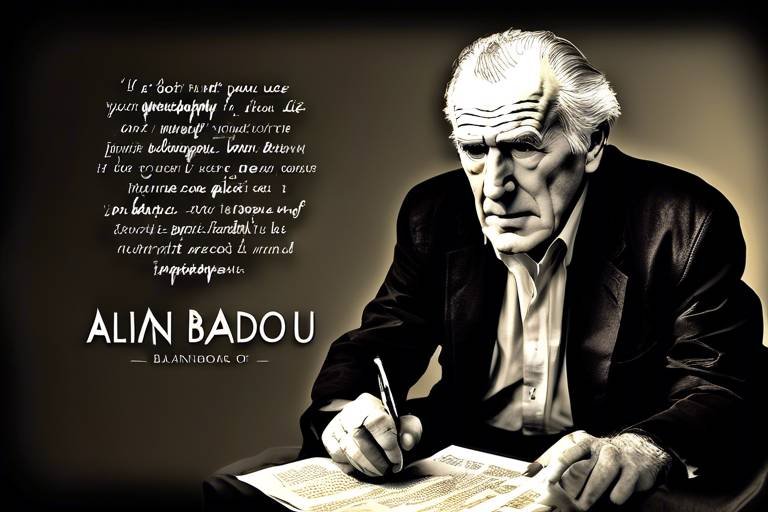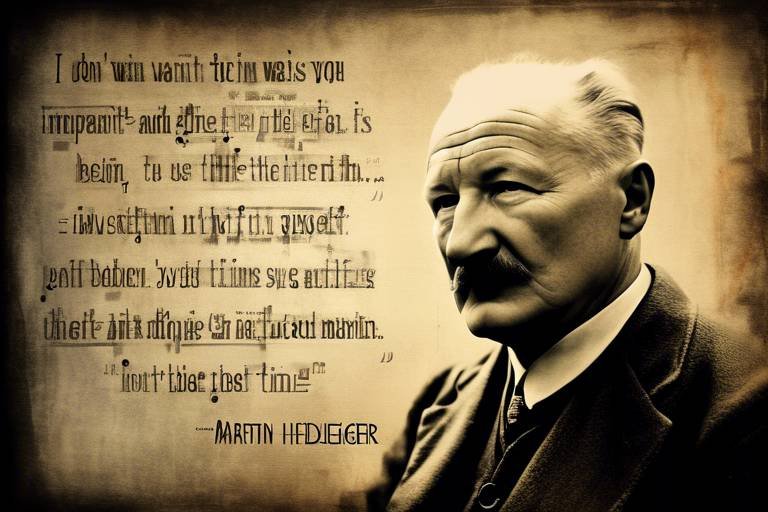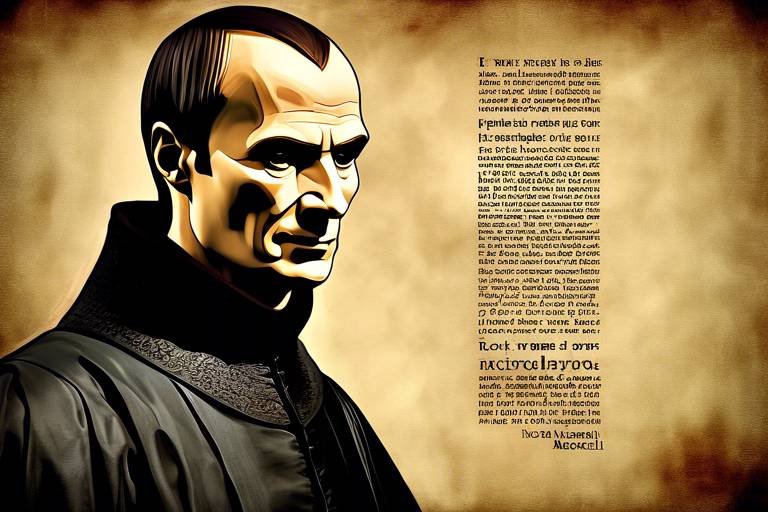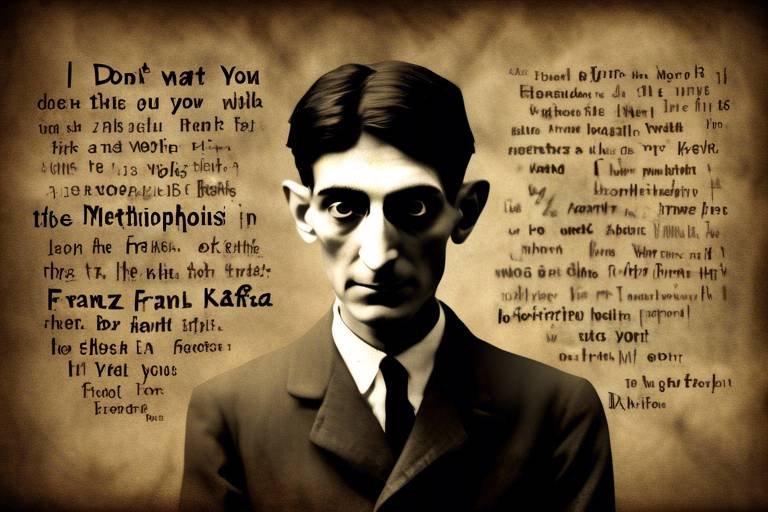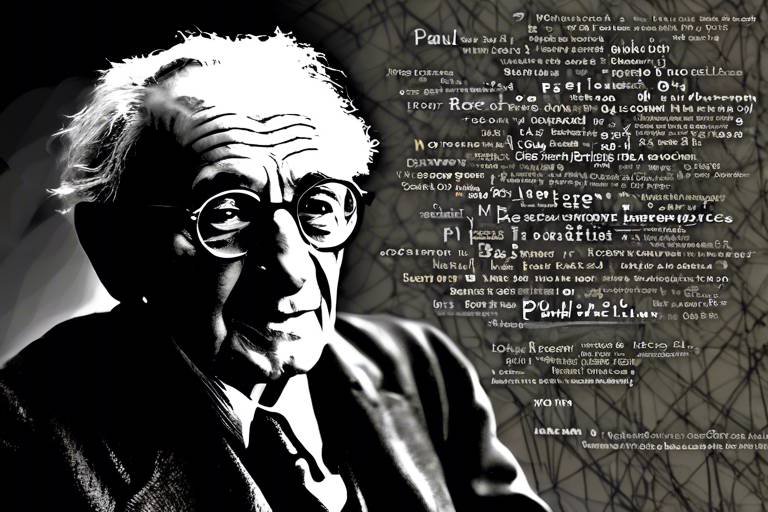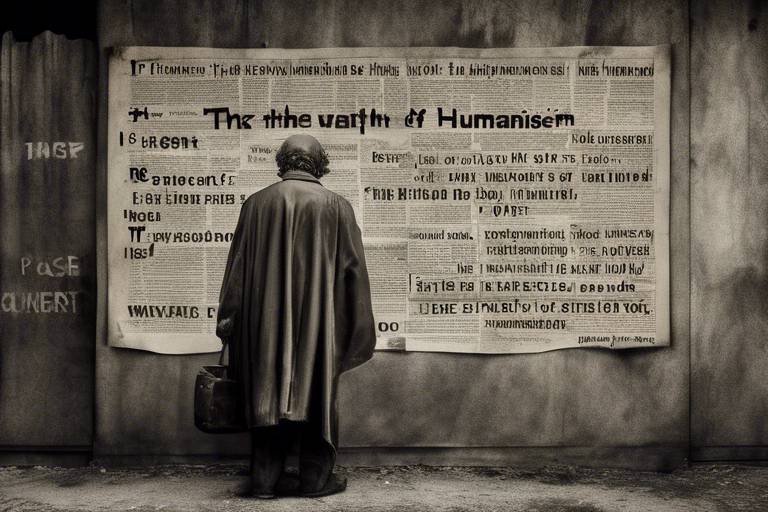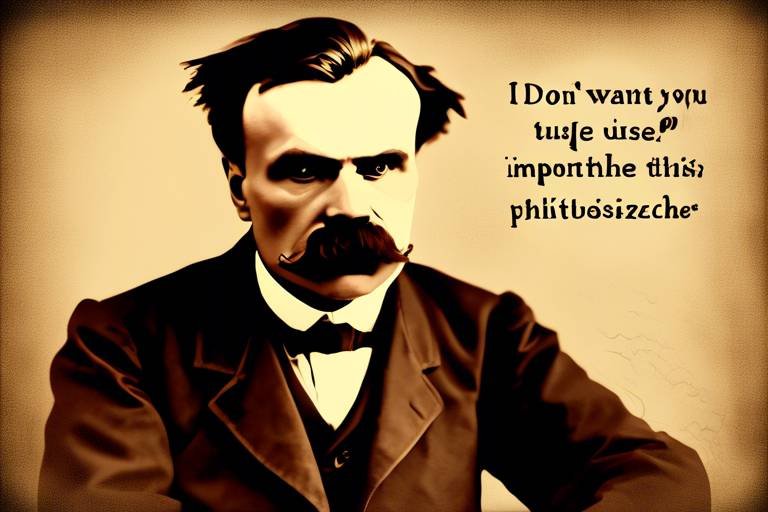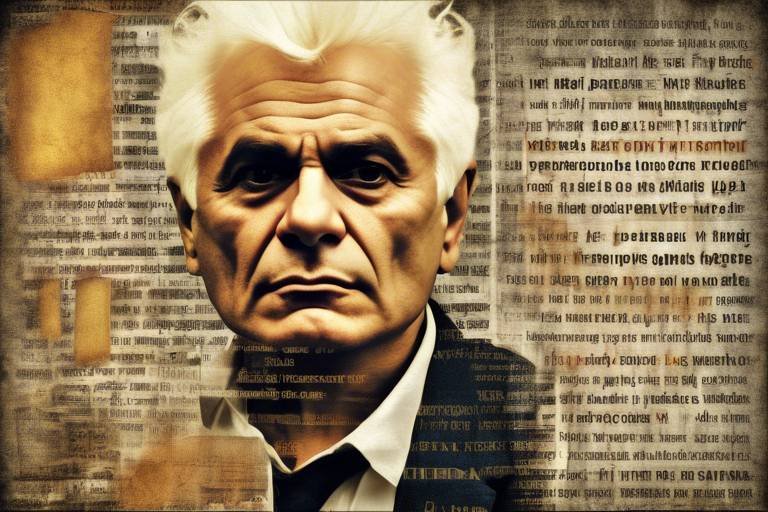The Life and Philosophy of Alain Badiou
Alain Badiou, a name that resonates with the echoes of contemporary philosophy, is not just another philosopher; he is a revolutionary thinker who challenges the very fabric of our understanding of truth, politics, and existence. Born on January 17, 1937, in Rabat, Morocco, Badiou's early years were marked by a blend of cultural influences that would shape his philosophical pursuits. His family later moved to France, where he would immerse himself in the vibrant intellectual scene of the 20th century.
Badiou's academic journey began at the prestigious École Normale Supérieure, where he was exposed to the works of great philosophers such as Hegel, Marx, and Heidegger. This exposure ignited a spark in him, leading to a lifelong quest to explore the depths of being and the nature of truth. His experiences during the May 1968 protests in France further fueled his political consciousness, instilling in him a belief that philosophy should not merely be an abstract exercise but a tool for social change.
Throughout his career, Badiou has held various academic positions, including a long tenure at the University of Paris VIII. His prolific writing includes seminal works such as Being and Event and Logics of Worlds, where he lays out his radical ideas on ontology and the role of events in shaping reality. What sets Badiou apart is his conviction that philosophy must engage with the real world, addressing pressing issues like justice, love, and politics.
In Badiou's view, philosophy is not just an academic discipline; it is a passionate commitment to the pursuit of truth. He believes that truth is not subjective but rather something that can be discovered through the lens of significant events that disrupt the norm. These events, whether they be political revolutions, scientific breakthroughs, or profound personal experiences, serve as catalysts for change, prompting individuals to rethink their beliefs and actions.
As we delve deeper into Badiou's philosophical concepts, we will uncover the intricacies of his theories on being, events, and truth, which are not only intellectually stimulating but also profoundly relevant to our contemporary lives. His work invites us to question the status quo and engage in a collective search for a better understanding of ourselves and the world around us.
- Who is Alain Badiou? Alain Badiou is a contemporary French philosopher known for his work on ontology, politics, and truth.
- What are Badiou's main philosophical concepts? His main concepts include the notions of being, event, and truth, which are central to his theoretical framework.
- How does Badiou connect events to truth? He believes that significant events can lead to new truths, requiring subjective engagement to realize their potential.
- What role does mathematics play in Badiou's philosophy? Badiou asserts that mathematics is the language of ontology, using set theory to articulate his ideas about existence.
- Why is Badiou's work relevant today? His ideas address contemporary issues such as social justice and the individual's role in collective movements, making his philosophy highly applicable to modern challenges.

Biographical Overview
Alain Badiou was born on January 17, 1937, in Rabat, Morocco, to a French family. His early life was marked by the colonial backdrop of French Morocco, which undoubtedly shaped his worldview and philosophical inquiries. At the tender age of 15, Badiou moved to France, where he would later immerse himself in the rich intellectual culture of Paris. His educational journey began at the prestigious École Normale Supérieure, where he studied philosophy. Under the guidance of influential figures such as Louis Althusser, Badiou cultivated a profound interest in Marxism, existentialism, and the works of key philosophers like Hegel and Nietzsche.
Throughout the 1960s, Badiou became actively involved in political movements, particularly during the events of May 1968, which left an indelible mark on his philosophical outlook. This period was a crucible for his thoughts on revolutionary politics and the potential for radical change. Badiou's commitment to philosophical inquiry did not wane, as he began to develop his unique theoretical framework that would challenge conventional notions of truth and being.
In his early career, Badiou worked as a teacher and wrote extensively, establishing himself as a prominent figure in contemporary philosophy. His first major work, “Being and Event”, published in 1988, introduced many of his key ideas, including the concept of the event and its relationship to truth. This work not only garnered attention for its innovative approach but also positioned Badiou as a significant voice in the philosophical landscape of the late 20th century.
Badiou's philosophical journey is also characterized by his engagement with mathematics, which he famously posits as the language of ontology. His exploration of set theory and its implications for understanding existence has set him apart from many of his contemporaries. This mathematical perspective allows him to articulate complex ideas about being and truth in a rigorous manner.
Throughout his career, Badiou has been a prolific writer, producing numerous works that span various topics, including politics, love, art, and ethics. His writings often reflect a deep commitment to radical thought and an unwavering belief in the transformative power of events. As we delve deeper into his philosophical concepts, it becomes clear that Badiou's life experiences have profoundly influenced his ideas, making him a pivotal figure in contemporary philosophical discourse.

Key Philosophical Concepts
Alain Badiou's philosophy is a rich tapestry woven from intricate ideas that challenge conventional wisdom and provoke deep reflection. At the heart of his thought lies a triad of concepts: being, event, and truth. These notions not only define his theoretical framework but also serve as tools for understanding the complexities of existence and human experience. Badiou's approach invites us to reconsider our perceptions of reality and the transformative potential of philosophical inquiry.
To grasp Badiou's philosophy, one must first understand his interpretation of being. For him, being is not a static entity but a dynamic process that is continually shaped by events. He posits that the essence of being is inherently tied to the multiplicity of existence, which can be articulated through the lens of set theory. This mathematical language allows Badiou to delve into the intricacies of ontology, providing a structured yet flexible framework for exploring the nature of reality.
Next, we arrive at the concept of the event, which is pivotal in Badiou's thought. An event is not merely an occurrence; it is a radical rupture in the fabric of the ordinary, a moment that challenges the status quo and opens up new realms of possibility. Badiou argues that events are transformative in nature, capable of altering our understanding of truth and existence. They serve as catalysts for change, prompting individuals to re-evaluate their beliefs and actions. In this sense, events are akin to a lightning strike—sudden, illuminating, and capable of igniting profound shifts in perspective.
In Badiou's framework, the event is not just an isolated phenomenon; it is deeply intertwined with the concept of truth procedures. He asserts that when an event occurs, it generates a truth that must be actively engaged with to realize its full potential. This engagement is not passive; it requires commitment and subjective involvement from individuals who seek to navigate the aftermath of the event. Badiou identifies four primary domains where truth procedures manifest:
- Science: The pursuit of knowledge and understanding through empirical inquiry.
- Art: Creative expressions that challenge perceptions and evoke new insights.
- Politics: Collective actions aimed at transforming societal structures.
- Love: Personal connections that transcend individual interests and create new relational dynamics.
Each of these domains illustrates how events can lead to the emergence of new truths, reshaping our understanding of the world. Badiou emphasizes that the realization of these truths requires a collective effort, as individuals come together to forge new paths forward.
Another cornerstone of Badiou's philosophy is his assertion that mathematics serves as the language of ontology. By employing set theory, he articulates complex philosophical ideas about existence, arguing that mathematical structures provide a clearer understanding of being. In Badiou's view, mathematics is not merely a tool for quantification; it is a profound means of exploring the relationships and connections that define our reality. This perspective allows for a rigorous examination of existence, revealing the underlying structures that govern the interplay of events and truths.
In summary, Badiou's key philosophical concepts challenge us to rethink our understanding of existence, truth, and the transformative power of events. His unique blend of mathematics and philosophy offers a compelling framework for engaging with the complexities of life, urging us to embrace the unexpected and to actively participate in the unfolding of new truths.

The Concept of the Event
Alain Badiou's concept of the event is one of the cornerstones of his philosophical framework, acting as a beacon that illuminates the pathways of thought and action. At its core, an event represents a radical disruption in the fabric of reality, a moment that defies the ordinary and shakes the foundations of established norms. Imagine a storm that suddenly alters the landscape—this is akin to what Badiou perceives an event to be. It is not just a change; it is a transformation that opens up new avenues for understanding and engagement.
In Badiou's view, events are not merely occurrences but are laden with potential. They are the catalysts that allow individuals and collectives to transcend their limitations and reimagine their existence. For instance, consider the events of the French Revolution or the fall of the Berlin Wall. These moments did not just mark a change in political regimes; they were profound events that redefined what it meant to be a citizen, to engage in politics, and to strive for a collective future. They invite us to ask, "What does it mean to be alive in a world that can change so drastically?"
Furthermore, Badiou posits that events are intrinsically linked to the concept of truth. He argues that every event gives rise to a truth procedure, a process through which the implications of the event are explored and realized. This means that the event is not an isolated phenomenon; it is a springboard for action and thought that requires active participation from individuals. For example, when a significant social movement arises, it is not enough for people to witness the event; they must engage with it, interpret it, and contribute to its unfolding. This engagement is what Badiou refers to as the process of subjectivation.
To better understand this relationship, we can visualize it through the following table:
| Event | Truth Procedure | Subjective Engagement |
|---|---|---|
| French Revolution | Establishment of new political ideologies | Active participation in the formation of a republic |
| Fall of the Berlin Wall | Reunification of Germany and the end of Cold War divisions | Engagement in democratic processes and civil rights movements |
In summary, an event, according to Badiou, is not just a singular moment in time; it is a powerful force that shapes reality and demands a response. It challenges the status quo and compels individuals to rethink their positions and actions within the world. The event is a call to arms, urging us to recognize our capacity for change and our role in the ongoing narrative of existence. So, the next time you witness a significant change, take a moment to consider—could it be an event that is reshaping the very essence of our lives?
- What is an event in Badiou's philosophy? An event is a transformative occurrence that disrupts the status quo and opens up new possibilities for thought and action.
- How does Badiou connect events to truth? Badiou believes that every event gives rise to a truth procedure, which is a process of engagement and interpretation that reveals the implications of the event.
- What role does subjective engagement play in events? Subjective engagement is crucial as it involves individuals actively participating in the unfolding of the event and its associated truths.

Events and Truth Procedures
Alain Badiou's philosophy intricately weaves together the concepts of events and truth procedures, creating a framework that challenges conventional understandings of reality and knowledge. At the heart of Badiou's thought is the idea that an event is not merely a random occurrence; rather, it is a significant rupture in the fabric of the existing state of affairs. This rupture opens up a space for new possibilities and ways of thinking. Imagine a sudden storm that uproots trees and reshapes the landscape—this is akin to how an event functions in Badiou's philosophy. It disrupts the mundane, forcing individuals and communities to confront new realities.
Events are pivotal because they are the catalysts for truth procedures. Badiou posits that when an event occurs, it demands a response, a subjective engagement from individuals who recognize its significance. This engagement is what Badiou refers to as a truth procedure—a process through which individuals and groups work to understand and actualize the implications of the event. Just as a seed requires the right conditions to sprout into a plant, an event necessitates a truth procedure for its potential to be realized. Without this engagement, the event remains a mere occurrence, devoid of transformative power.
To further illustrate Badiou's concept of truth procedures, we can consider the following essential elements:
- Recognition: The first step is recognizing the event for what it is. This requires a shift in perception, a willingness to see beyond the status quo.
- Engagement: Once recognized, individuals must actively engage with the event, questioning and exploring its implications.
- Collective Action: Truth procedures often necessitate collective action, as individuals come together to realize the potential of the event.
- Validation: Over time, the outcomes of these procedures must be validated through ongoing dialogue and practice, ensuring that the truth remains dynamic and relevant.
Badiou emphasizes that truth procedures are not linear or straightforward; they are often messy and fraught with challenges. They require a commitment to the process, as individuals navigate the complexities of new truths that emerge from events. This complexity is what makes Badiou's philosophy so compelling—it acknowledges the tumultuous nature of change and the necessity of sustained effort in the pursuit of truth.
Ultimately, Badiou's exploration of events and truth procedures invites us to reconsider our relationship with reality. It challenges us to embrace the unexpected and to engage actively with the world around us. In doing so, we can participate in the unfolding of new truths that have the potential to reshape our understanding of existence and our role within it.
- What is an event in Badiou's philosophy?
An event is a transformative occurrence that disrupts the status quo, opening up new possibilities for thought and action. - How do truth procedures relate to events?
Truth procedures are the processes through which individuals engage with and actualize the implications of an event, allowing for the emergence of new truths. - Why are events important?
Events are crucial because they challenge existing beliefs and norms, prompting individuals and communities to rethink their understanding of reality. - Can anyone participate in truth procedures?
Yes, anyone who recognizes the significance of an event and is willing to engage with its implications can participate in truth procedures.

Mathematics and Ontology
Alain Badiou's philosophical framework is deeply intertwined with the discipline of mathematics, which he views as the language of ontology. This assertion is not merely a rhetorical flourish; rather, it serves as a foundational pillar for his entire philosophical project. Badiou argues that mathematics provides the most precise means to articulate concepts of being and existence, allowing us to navigate the complexities of reality. By employing set theory, he posits that we can systematically explore the structures that underlie our understanding of the world.
To grasp Badiou's perspective, it's essential to recognize how he differentiates between ontological truths and the more conventional epistemological truths that dominate much of traditional philosophy. While epistemology focuses on our knowledge and beliefs about the world, ontology concerns itself with the nature of being itself. Badiou’s unique approach suggests that through mathematical structures, we can uncover the fundamental truths of existence, transcending subjective interpretations and biases.
Consider, for instance, the way he utilizes the concept of infinity in set theory. Infinity, in Badiou's view, is not just a mathematical abstraction but a profound ontological principle that challenges our conventional understanding of limits and boundaries. This connection between mathematics and ontology allows Badiou to propose that the infinite nature of sets can be mirrored in the infinite possibilities of existence itself. Thus, the mathematical treatment of infinity becomes a metaphor for the limitless potential of being, encouraging us to think beyond the constraints of the present.
Moreover, Badiou's engagement with mathematics enables him to formulate his idea of the event—a transformative occurrence that disrupts the existing order. He argues that events can be understood mathematically as points of divergence within a set, where new truths emerge. This mathematical framing not only enriches his philosophical discourse but also provides a rigorous methodology for analyzing the dynamics of change in various domains, including politics, art, and science.
In summary, Badiou's integration of mathematics into his ontology is a bold and innovative move that redefines how we approach philosophical inquiry. It challenges us to rethink the connections between abstract thought and concrete reality, urging us to recognize the potential for new truths that lie beyond our immediate perceptions. By embracing mathematics as a tool for philosophical exploration, Badiou opens up exciting avenues for understanding existence and the transformative power of events.
- What is Badiou's main philosophical contribution? Badiou's main contribution lies in his unique integration of mathematics with ontology, emphasizing the role of events in shaping truth and existence.
- How does Badiou view the relationship between mathematics and reality? He sees mathematics as the fundamental language that articulates the structures of being, allowing for a clearer understanding of reality.
- What is the significance of the concept of the event in Badiou's philosophy? The event represents a transformative occurrence that disrupts the status quo, leading to new possibilities for thought and action.

Political Philosophy
Alain Badiou's political philosophy is a profound exploration of the intersections between truth, politics, and collective action. He challenges the conventional political landscape, particularly the dominant ideologies that have shaped contemporary governance. Badiou argues that traditional political frameworks often fall short in addressing the complexities of human existence and the potential for genuine change. Instead, he advocates for a radical rethinking of political engagement, urging individuals to embrace the concept of the event as a catalyst for transformation.
At the heart of Badiou's political thought is the belief that politics should be rooted in the pursuit of truth. Unlike many modern political theorists who emphasize pragmatism and compromise, Badiou posits that a true political movement must be anchored in a commitment to universal truths. He asserts that these truths emerge from significant events that disrupt the status quo—events that challenge existing power structures and open avenues for new possibilities. In this sense, political action becomes a form of subjective engagement, where individuals actively participate in realizing the potential of these transformative occurrences.
Badiou's critique extends to the notion of democracy itself. He questions whether contemporary democratic practices genuinely reflect the will of the people or merely serve as a façade for maintaining the status quo. He emphasizes that true democracy should be an ongoing process of collective deliberation and action, rather than a mere electoral exercise. In his view, the political landscape is fraught with challenges, including apathy, alienation, and the commodification of political discourse. To counter these issues, Badiou calls for a reinvigoration of political engagement through the following principles:
- Radical Equality: Badiou believes in the necessity of radical equality as a foundation for any political movement. He argues that all individuals should have equal access to the opportunities created by significant events.
- Collective Action: He emphasizes the importance of collective action in achieving meaningful change, suggesting that individuals must come together to form a unified front against oppressive systems.
- Commitment to Truth: Badiou insists that political movements must be grounded in a commitment to universal truths that transcend individual interests.
In essence, Badiou's political philosophy is a call to arms for those who seek to challenge the prevailing order. By harnessing the power of events and engaging in active political discourse, individuals can contribute to the creation of a more just and equitable society. His ideas resonate with various social movements, particularly those advocating for social justice, as they reflect a desire for profound change rather than mere reform.
As we reflect on Badiou's contributions, it's crucial to recognize that his philosophy is not merely theoretical; it serves as a practical guide for navigating the complexities of contemporary political life. By embracing the principles of radical equality, collective action, and a commitment to truth, we can engage in a political practice that aspires to genuine transformation. In a world where political cynicism often prevails, Badiou's vision offers a refreshing perspective on the potential for meaningful change through active participation and a steadfast commitment to universal truths.
1. What is the main focus of Alain Badiou's political philosophy?
Badiou's political philosophy centers on the idea that politics should be grounded in the pursuit of universal truths, emphasizing the importance of events that disrupt the status quo and facilitate collective action.
2. How does Badiou view contemporary democracy?
He critiques contemporary democracy as often failing to genuinely reflect the will of the people, advocating for a more engaged and participatory approach to political life.
3. What are the key principles of Badiou's political engagement?
The key principles include radical equality, collective action, and a commitment to truth, which together form the foundation for meaningful political movements.

Influence and Legacy
Alain Badiou's influence on contemporary philosophy and political thought is profound and multifaceted. He has managed to carve out a niche that challenges conventional wisdom, inviting both admiration and critique from various intellectual circles. His works have not only sparked debates in academic settings but have also resonated with activists and thinkers who seek a deeper understanding of truth and collective action. Badiou's philosophy is often seen as a beacon for those disillusioned with the status quo, providing a framework that encourages radical rethinking of established norms.
One of the most significant aspects of Badiou's legacy is his insistence on the importance of events as catalysts for change. He posits that true transformation occurs when unexpected events disrupt the mundane flow of existence. This idea has inspired many to reconsider how they engage with the world, emphasizing the need for a proactive approach to social and political issues. In essence, Badiou encourages individuals to embrace the chaos of events and to see them as opportunities for creating new truths rather than simply as disruptions.
As we delve deeper into Badiou's impact, it's essential to highlight the various fields that have been influenced by his work. His ideas have permeated a range of disciplines, including:
- Philosophy: Badiou's unique approach to ontology and mathematics has opened up new avenues for philosophical inquiry.
- Political Theory: His critiques of contemporary politics challenge established paradigms, urging a reevaluation of political engagement.
- Art and Literature: Many artists and writers draw inspiration from Badiou's notions of truth and event, exploring these themes in their works.
Moreover, Badiou's legacy is not without its controversies. While many celebrate his radical approach, others criticize it for being overly abstract or disconnected from practical realities. This duality in reception illustrates the complexity of his thought and the diverse interpretations it invites. For instance, some scholars argue that his emphasis on universal truths may overlook the nuances of particular contexts, while others see it as a necessary counterbalance to relativism.
Despite the criticisms, Badiou's work continues to inspire new generations of thinkers and activists. His insistence on the necessity of truth procedures as a means of realizing the potential of events remains a powerful call to action. In a world increasingly characterized by fragmentation and disillusionment, Badiou's philosophy offers a framework for collective engagement and the pursuit of a just society.
In conclusion, Alain Badiou's influence and legacy are marked by a commitment to challenging the status quo and advocating for a radical rethinking of truth and politics. His ideas resonate in various fields, encouraging individuals to embrace the transformative power of events. While his work invites both acclaim and criticism, it undeniably continues to shape contemporary thought and inspire those who seek to forge a new path in the pursuit of justice and truth.
- What is Alain Badiou known for?
Alain Badiou is known for his unique perspectives on truth, politics, and being, particularly through his concepts of events and truth procedures.
- How has Badiou influenced contemporary philosophy?
Badiou has influenced contemporary philosophy by challenging traditional views on ontology and advocating for a radical rethinking of political engagement.
- What are the key themes in Badiou's work?
Key themes in Badiou's work include the nature of events, the importance of truth procedures, and the relationship between mathematics and ontology.
- What criticisms does Badiou face?
Badiou faces criticism for being overly abstract and for his emphasis on universal truths, which some argue may overlook the complexities of specific contexts.

Reception and Criticism
Alain Badiou's work has sparked a wide range of reactions, from enthusiastic endorsements to pointed critiques, reflecting the complexity and depth of his philosophical contributions. His ideas often challenge the established norms, particularly in the realms of politics and ontology, which can lead to polarized opinions among scholars and practitioners alike. Supporters laud Badiou for his bold reimagining of truth and being, arguing that his framework offers a refreshing departure from the relativism that has permeated contemporary thought. They appreciate how he intertwines philosophy with activism, suggesting that genuine change can emerge from the recognition of transformative events.
Conversely, critics argue that Badiou's ideas can be overly abstract or detached from practical realities. Some find his reliance on mathematical concepts, particularly set theory, as a foundation for ontology to be unnecessarily convoluted. They question whether a mathematical approach can genuinely capture the nuances of human experience and social dynamics. Furthermore, Badiou's political philosophy, which advocates for radical engagement and collective action, has been critiqued for being idealistic, with some detractors suggesting that it overlooks the complexities and messiness of real-world politics.
Despite these criticisms, Badiou's work continues to resonate within academic circles and beyond. His ideas have influenced various movements, particularly those advocating for social justice and radical change. Scholars often engage with Badiou's philosophy in a manner that seeks to both critique and build upon his theories. This dynamic interplay of reception illustrates the ongoing relevance of his work, as it encourages debate and discussion about the nature of truth, politics, and existence.
To better understand the spectrum of opinions surrounding Badiou, here’s a concise table summarizing key points of reception and criticism:
| Supporters' Views | Critics' Views |
|---|---|
|
|
In conclusion, the reception of Alain Badiou's work is as multifaceted as his philosophy itself. While his ideas have garnered significant acclaim for their originality and depth, they have also faced substantial criticism for their perceived impracticality and abstraction. This ongoing dialogue about his contributions serves to highlight the vital role that philosophy plays in shaping our understanding of truth, politics, and existence in a rapidly changing world.
Q: What is Alain Badiou best known for?
A: Alain Badiou is best known for his unique philosophical perspectives on truth, being, and politics, particularly his concept of the event and its implications for social change.
Q: How does Badiou connect mathematics to philosophy?
A: Badiou argues that mathematics serves as the language of ontology, using set theory to articulate complex ideas about existence and the nature of being.
Q: What are some criticisms of Badiou's work?
A: Critics often cite his abstract approach, reliance on mathematics, and idealistic views on political engagement as points of contention.
Q: Why is Badiou's philosophy still relevant today?
A: Badiou's ideas resonate in contemporary discussions about social justice, truth, and the role of individuals in collective movements, making his work pertinent to current philosophical and political discourse.

Continuing Relevance
Alain Badiou's philosophy remains profoundly relevant in today's world, where issues of social justice, truth, and the role of the individual in collective movements are more pressing than ever. His ideas challenge us to rethink the way we engage with the world and each other, particularly in the face of political apathy and the overwhelming complexity of contemporary life. Badiou's insistence on the importance of events as catalysts for change encourages individuals to recognize moments of potential that can disrupt the status quo and lead to transformation.
One of the most compelling aspects of Badiou's work is his emphasis on subjective engagement. He argues that individuals must actively participate in the unfolding of events to realize their transformative potential. This approach resonates with movements advocating for social change, where collective action is essential. For instance, consider the recent global protests advocating for climate change and racial equality; these events exemplify Badiou's notion of the event as a space where new truths can emerge, challenging established norms and practices.
Moreover, Badiou's exploration of truth procedures offers a framework for understanding how truths are constructed and validated within society. In an age where misinformation spreads like wildfire, his ideas prompt us to critically assess the sources of our beliefs and the processes through which we arrive at them. This critical examination is vital for fostering a more informed and engaged citizenry capable of navigating the complexities of modern life.
As we delve further into the implications of Badiou's philosophy, we can see its relevance in various fields, including politics, art, and education. Each of these domains can benefit from a Badiou-inspired approach that prioritizes the significance of events and the active role of individuals in shaping their realities. Whether it's through artistic expression that challenges societal norms or educational practices that encourage critical thinking and active participation, Badiou's ideas continue to inspire a generation seeking meaningful change.
In conclusion, Alain Badiou's philosophy not only provides a lens through which to view the complexities of our contemporary world but also serves as a call to action. It invites us to embrace the potential of events, engage in truth procedures, and actively participate in the collective movements that shape our society. As we navigate the challenges of the 21st century, Badiou's insights remind us of the power we hold as individuals and the importance of our collective efforts in the pursuit of a more just and equitable world.
- What is the significance of Badiou's concept of the event?
The event is crucial in Badiou's philosophy as it represents a transformative occurrence that can disrupt existing structures and create new possibilities for thought and action.
- How does Badiou connect truth to collective action?
Badiou argues that truths emerge from events and require subjective engagement, meaning individuals must actively participate in realizing these truths through collective action.
- Why is Badiou's philosophy important today?
His philosophy addresses contemporary issues like social justice and political engagement, providing a framework for understanding and participating in movements that seek change.
Frequently Asked Questions
- Who is Alain Badiou?
Alain Badiou is a prominent contemporary philosopher known for his unique perspectives on truth, politics, and the nature of being. His work spans various fields, including philosophy, mathematics, and political theory, making him a significant figure in modern intellectual discourse.
- What are Badiou's key philosophical concepts?
Badiou's philosophy revolves around several core ideas, such as the concepts of being, event, and truth. He argues that events are transformative occurrences that disrupt the existing order, leading to new possibilities for thought and action.
- How does Badiou define an 'event'?
In Badiou's framework, an event is a significant occurrence that breaks from the norm and allows for a re-evaluation of what is possible. It is a catalyst for change, prompting individuals and communities to engage with new truths and realities.
- What are truth procedures according to Badiou?
Truth procedures are the processes through which individuals engage with events to realize their potential. Badiou emphasizes that subjective involvement is crucial in this process, as it allows people to explore and actualize the truths that emerge from significant events.
- How does Badiou relate mathematics to ontology?
Badiou posits that mathematics is the language of ontology, suggesting that set theory provides a framework for understanding existence. He uses mathematical concepts to articulate complex philosophical ideas about being and reality.
- What is Badiou's stance on political philosophy?
Badiou critiques contemporary political systems and advocates for a radical rethinking of political engagement. He believes in the power of collective action and the necessity of reimagining how individuals interact within political frameworks.
- How has Badiou's work been received in academic circles?
Alain Badiou's work has garnered both acclaim and criticism. While many praise his innovative ideas and contributions to philosophy, others challenge his views, particularly regarding his political theories and interpretations of truth.
- Why is Badiou's philosophy still relevant today?
Badiou's philosophy continues to resonate in contemporary discussions on social justice, truth, and the role of individuals in collective movements. His ideas provide a framework for addressing current issues and inspire new ways of thinking about society and politics.

